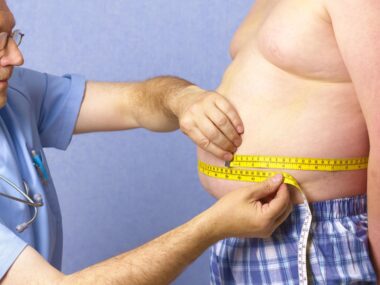Introduction: Water is often referred to as the elixir of life, and for good reason. It plays a vital role in nearly every bodily function, from regulating body temperature to facilitating nutrient transport and supporting cellular function. In the realm of health and fitness, proper hydration is paramount for optimizing performance, promoting recovery, and maintaining overall wellbeing. In this comprehensive guide, we’ll explore the critical role of water in achieving optimal health and fitness, delve into the science behind hydration, and provide practical strategies for staying adequately hydrated.
Understanding Hydration: Hydration refers to the process of maintaining an optimal balance of water in the body to support physiological functions. The human body is composed of approximately 60% water, with different tissues and organs varying in their water content. Water is continuously lost through processes such as sweating, urination, and respiration, highlighting the importance of replenishing fluids to maintain hydration status.
The Importance of Water in Health and Fitness: Water plays a multifaceted role in supporting overall health and fitness, influencing various physiological processes and metabolic functions. Some key functions of water include:
- Temperature Regulation: Water helps regulate body temperature through sweat production and evaporation, preventing overheating during physical activity and maintaining thermal equilibrium.
- Nutrient Transport: Water serves as a solvent for essential nutrients, facilitating their absorption and transport throughout the body.
- Waste Removal: Water aids in the elimination of metabolic waste products and toxins through urine and sweat, supporting detoxification and kidney function.
- Joint Lubrication: Water provides lubrication for joints and cushions cartilage, reducing friction and supporting joint function during movement.
- Muscle Function: Adequate hydration is essential for optimal muscle function, as water helps maintain electrolyte balance, regulate muscle contractions, and prevent cramping and fatigue.
- Cognitive Function: Dehydration can impair cognitive function, mood, and concentration, leading to decreased alertness and mental performance.
Hydration Status and Performance: Optimal hydration is crucial for maximizing athletic performance and exercise capacity. Even mild dehydration can impair physical performance, leading to decreased endurance, strength, power output, and coordination. Dehydration can also increase the risk of heat-related illnesses such as heat exhaustion and heatstroke, particularly during intense or prolonged exercise in hot environments. Maintaining proper hydration before, during, and after exercise is essential for sustaining performance, enhancing recovery, and minimizing the risk of dehydration-related complications.
Factors Affecting Hydration Needs: Several factors influence individual hydration needs, including:
- Exercise Intensity and Duration: The duration, intensity, and type of exercise affect fluid losses through sweating and metabolic demands, influencing hydration requirements.
- Environmental Conditions: Hot and humid environments increase sweat rate and fluid loss, necessitating higher fluid intake to maintain hydration status.
- Body Composition: Lean body mass, body size, and metabolic rate influence fluid needs, with larger individuals and those with higher muscle mass typically requiring more fluids.
- Age and Gender: Children, older adults, and pregnant or lactating women may have unique hydration needs due to differences in body composition, metabolic rate, and hormonal fluctuations.
- Health Status: Certain medical conditions, medications, and dietary factors can affect fluid balance and hydration status, requiring adjustments to fluid intake.
Signs of Dehydration: Recognizing the signs of dehydration is essential for prompt intervention and prevention of complications. Common symptoms of dehydration include:
- Thirst
- Dark urine
- Reduced urine output
- Dry mouth and lips
- Fatigue or weakness
- Headache
- Dizziness or light headedness
- Increased heart rate
- Poor concentration or cognitive function
Strategies for Staying Hydrated: To maintain optimal hydration and support health and fitness goals, consider implementing the following strategies:
- Drink Adequate Fluids: Aim to consume sufficient fluids throughout the day to meet your hydration needs. The Institute of Medicine recommends approximately 3.7 liters (125 ounces) of total water intake per day for men and 2.7 liters (91 ounces) for women, including fluids from beverages and foods.
- Monitor Urine Color: Use urine color as a simple indicator of hydration status. Pale yellow urine generally indicates adequate hydration, while darker urine may signal dehydration and the need to increase fluid intake.
- Hydrate Before Exercise: Drink fluids before starting exercise to ensure adequate hydration and minimize fluid losses during physical activity. Aim to consume approximately 16-20 ounces of water or a sports drink 2-3 hours before exercise.
- Stay Hydrated During Exercise: Drink fluids regularly during exercise to replace fluid losses through sweating and maintain hydration status. The American College of Sports Medicine recommends consuming 7-10 ounces of fluid every 10-20 minutes during exercise, adjusting intake based on sweat rate, exercise duration, and environmental conditions.
- Replenish Fluids Post-Exercise: Rehydrate after exercise by consuming fluids and electrolytes to replace fluid losses and support recovery. Aim to drink approximately 20-24 ounces of fluid for every pound of body weight lost during exercise.
- Choose Hydrating Foods: Incorporate hydrating foods with high water content into your diet, such as fruits (e.g., watermelon, oranges, berries), vegetables (e.g., cucumbers, celery, lettuce), soups, and broths.
- Monitor Hydration Status: Pay attention to signs of dehydration and adjust fluid intake accordingly. Weighing yourself before and after exercise can help estimate fluid losses and guide rehydration efforts.
- Consider Electrolyte Replacement: During prolonged or intense exercise, consider consuming electrolyte-rich fluids or sports drinks to replace electrolytes lost through sweat and maintain electrolyte balance.
- Individualize Hydration Strategies: Tailor hydration strategies to your specific needs, taking into account factors such as exercise intensity, duration, environmental conditions, sweat rate, and personal preferences.
Conclusion: In conclusion, water plays a fundamental role in supporting optimal health and fitness, influencing nearly every aspect of physiological function and performance. Adequate hydration is essential for regulating body temperature, facilitating nutrient transport, supporting muscle function, and maintaining cognitive function. By prioritizing hydration before, during, and after exercise, monitoring hydration status, and implementing practical strategies for staying adequately hydrated, individuals can optimize their health, enhance athletic performance, and promote overall wellbeing. Remember to listen to your body’s thirst signals, monitor urine color, and adjust fluid intake accordingly to ensure you’re meeting your hydration needs. As you embrace the power of hydration in your health and fitness journey, may you experience the transformative benefits of staying properly hydrated and thriving in all aspects of life.










